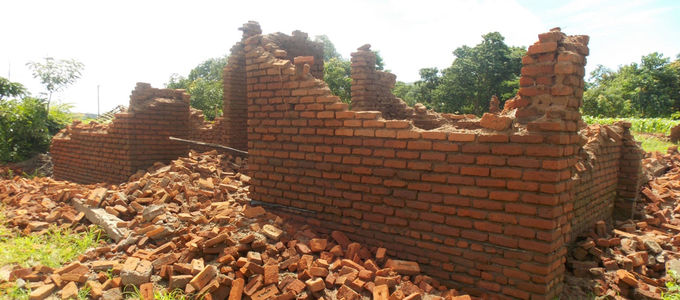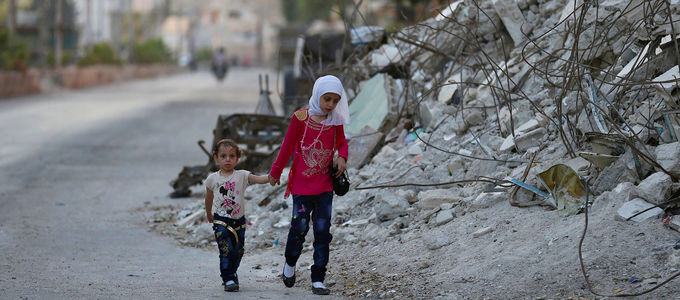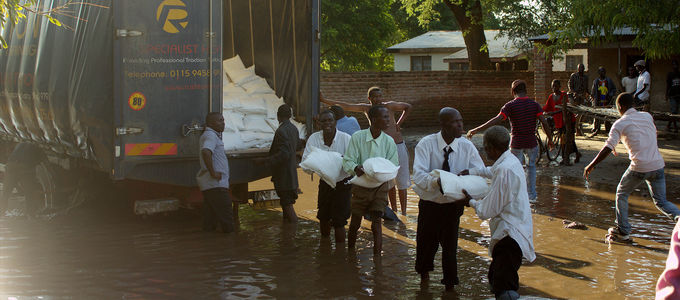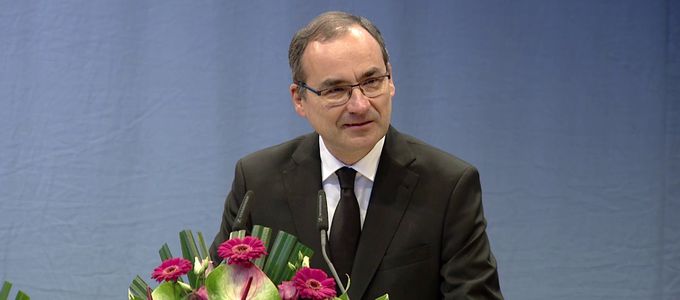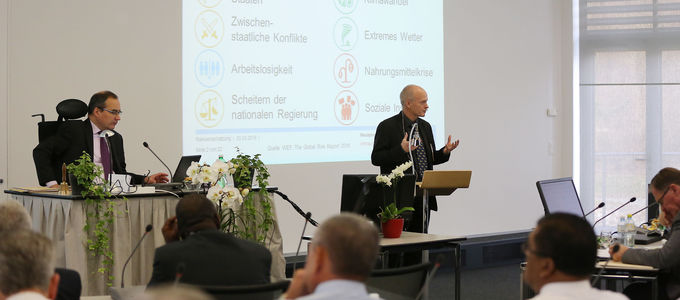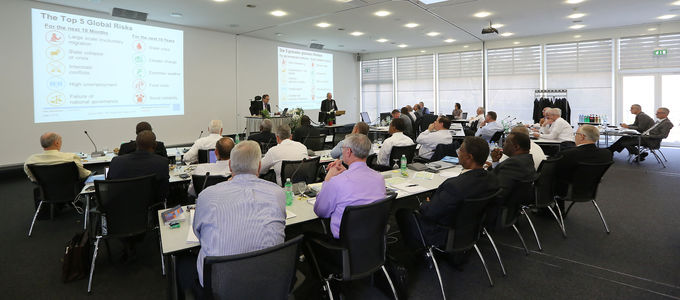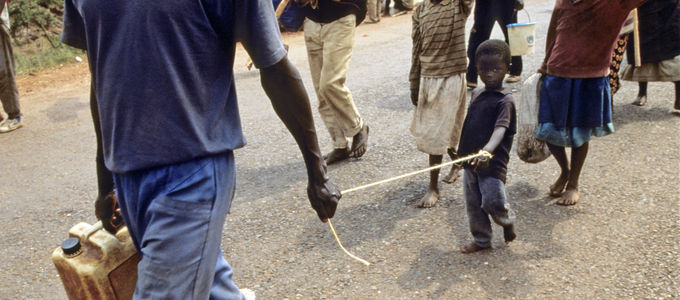
Not of this world, but in this world … A Church is also exposed to world events and needs to think about what all can happen in the event of conflicts, wars, and disasters. Is there a way to prepare for something like this?
A civil war makes a whole country go up in flames. What started in a single region has now spread throughout the country. Thousands of New Apostolic church buildings have been reduced to ashes. What now? Such a nightmare scenario is not all that unlikely.
Experts consulted by the New Apostolic Church International (NACI) in Zurich have given some serious thought to such scenarios and how they might affect the Church. After all, it is the Church’s job “to ensure the economic viability of the various District Churches and to contribute to their development”. This is provided for in Article 2.3 of the NACI Statutes.
World Economic Forum lists risks
The basis for the Church’s reflections is of a worldly nature in a double sense. A globally active association has to keep global risks in mind. And to do so it relies on professional foundations: the Global Risks Report 2016, to which 750 experts and decision-makers from the field of politics and commerce contributed for the World Economic Forum.
The five biggest risks in the immediate future—the coming eighteen months—the report forecasts as being large-scale migration, state collapses or crises, interstate conflicts, unemployment or underemployment, and the failure of national governance. In the long-term—over the next ten years—the biggest risks will result from water crises, climate change, extreme weather events, food crises, and social instability.
Social developments and their consequences
What does this mean for the Church specifically? In the event of an emergency, the effects can be considerable. These can range from the seizure of Church bank accounts to the prohibition of religious denominations and the destruction of church buildings in war-torn areas.
What also has to be borne in mind are social developments such as demographic changes, the ageing population in Western nations, the declining willingness—over the long-term—of people to do volunteer work, and the increased demand on those in responsible positions (“burnout”) in many areas of life.
Ora et labora – prayer and work
How can the international Church protect itself from negative consequences? Ora et labora (prayer and work)—because praying alone will not help. And work in this context means—in a nutshell—to economize and work together. Economizing not only means being careful not to spend more than you earn. In fact, economizing means saving for hard times. The Church Finance Committee, which was founded two years ago, is keeping an eye on both of these aspects for the global Church.
The common good, the principle of solidarity, is not only firmly anchored in our faith, but also in the Statutes of our Church. And on the basis of this principle, District Churches not only receive support from NACI, but also from other District Churches. This ranges from operational activities to investments. No wonder then that the Church spokesman, Peter Johanning, comes to the following conclusion: “We consider ourselves well-positioned to deal with the relevant risks at the moment.”






